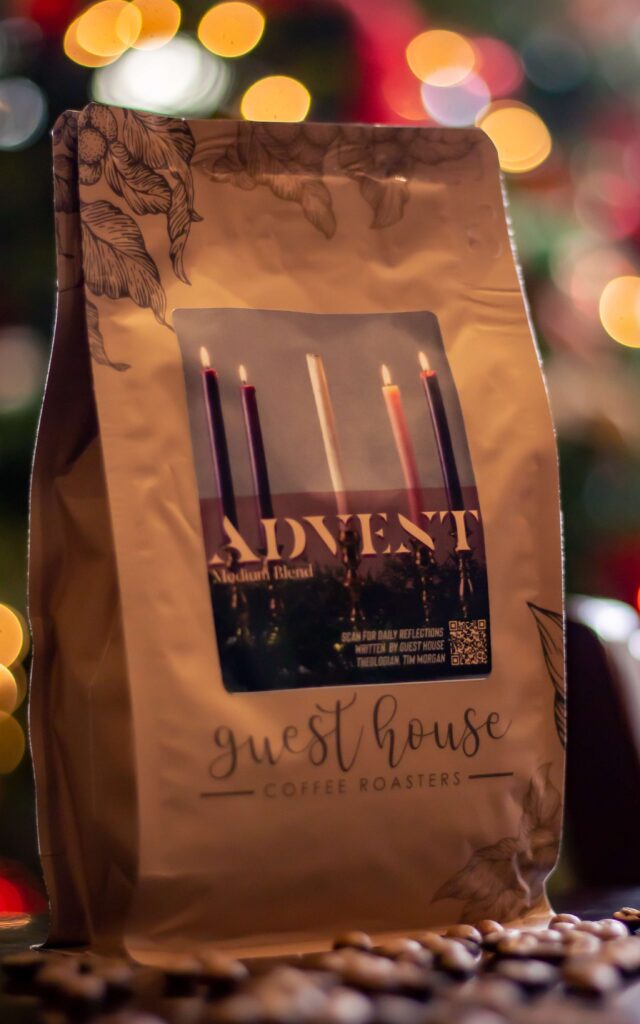“Now may our Lord Jesus Christ himself, and God our Father, who loved us and gave us eternal comfort and good hope through grace, comfort your hearts and establish them in every good work and word” (2 Thessalonians 2:16-17).
The names “Eucharist,” “Communion,” and “Lord’s Supper” all get at different aspects of the same thing. None of them are (or at least ought to be) partisan claims staked against what such-and-such thinks about what’s going on when we take bread and the fruit of the vine with one another. The language, in each case, is as explicitly biblical as it gets (Matthew 26:27; Mark 14:23; Luke 22:19; 1 Corinthians 10:16; 11:20; the word “Eucharist” derives from the Greek eucharisteō meaning “I give thanks,” whereas “communion” is one viable translation of the Greek koinōnia meaning “commonality”). The “Eucharist” is a recognition of the gift of this bread and an expression of gratitude for what Christ distributes to us with the words, “This is my body, which is given for you. Do this in remembrance of me” (Luke 22:19). “Communion” is an articulation of what is going on in the meal we share together, namely, we our bound to one another (as one human being) in our “participation” in the body and blood of Jesus (1 Corinthians 10:16-17). The “Lord’s Supper” is the check put upon the prejudices we bring to this meal, in its articulation and in its practice: this is the Lord’s meal, not ours (1 Corinthians 10:21), because the Lord reigns in it (Luke 22:28-30). These images—which are fastened in the Church’s life to the depths of this meal’s significance—all depart from and return to the same focal point. Jesus is coming in this meal.
We eat and drink this meal in the face of affliction. In two of the four reports of the Lord’s Supper (excluding John’s account which, along with Matthew and Mark, does not include it), Jesus says, “Do this in remembrance of me” (Luke 22:19; 1 Corinthians 11:24). In three of the four reports (four of five, including John’s account; all of the accounts if we perceive the inherent connection this feature bears with 1 Corinthians 11:27-32), Jesus draws attention to his betrayer’s place at the table (Matthew 26:21-25; Mark 14:18-21; Luke 22:21-22; John 13:21-27). The command to “do this in remembrance” of Jesus is particularly fixed on his establishment of the new covenant in his blood (Luke 22:20). In offering his blood and body, God is initiating a new relationship with his people, a relationship “not of the letter but of the Spirit” (2 Corinthians 3:6). God commands in the Eucharist a remembrance of the relationship which he has established with us his people; a remembrance of the promised kingdom (Luke 22:16-18), even and especially meant for times when its coming isn’t apparent. And to this point, it is a remembrance in the face of adversity. The psalmist writes, “I have been forgotten like one who is dead; I have become like a broken vessel. For I hear the whispering of many—terror on every side!—as they scheme together against me, as they plot to take my life” (Psalm 31:12-13). Precisely this is Jesus’ situation at Passover with his disciples (and its intensity accelerates in the subsequent events). In his coming, Jesus’ situation as the desolate-yet-vindicated one embraces our own situation before him in the world. We too are desolate-yet-vindicated, “for not all have faith. But the Lord is faithful” (2 Thessalonians 2:2-3).
Today, I’d ask you to reflect upon the significance of the Lord’s Supper—not necessarily the categories of debate which tend to vaguely wander between different churches. Rather, what is God doing in the Eucharist? Can we see it? Can we get in on it? The birth of Jesus is the decisive fact in this regard. He’s sent to God’s people for their redemption. He’s afflicted from the outset. He’s preserved by God for God’s purpose step by step. He founds our final disposition of gratitude before God. He effects our final condition of unity with another in him. He pronounces the final judgment upon our world.
Further Reading: Psalm 31; Isaiah 7:10-25; 2 Thessalonians 2:13-3:5; Luke 22:14-30
Written by Guest House Theologian, Tim Morgan. These reflections are a complimentary addition to our Advent Blend Coffee Bags. Scan the QR code each day to read the most recent reflection.

More Advent reflections can be found here.